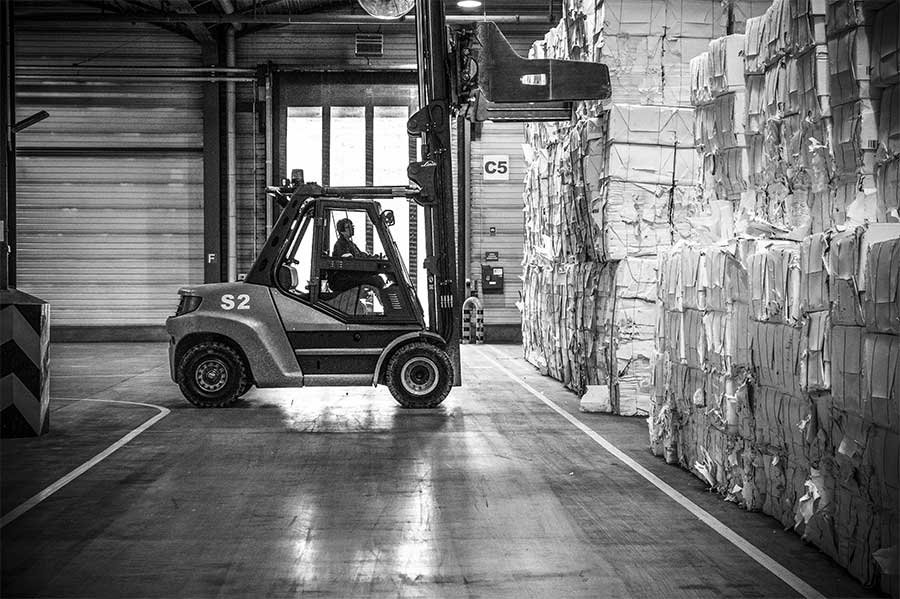Finland Leads the Nordic Sustainability, Sweden is Close Behind
EcoVadis published Measuring the Sustainability Performance of European Companies 2021 which explores the sustainability progress made by companies in the EcoVadis network from 2015 to 2020. The strong performance of the Nordic countries (Denmark, Finland, Norway and Sweden) is the key trend of the report.
Methodology and performance categories
Measuring the Sustainability Performance of European Companies analyzed more than 90,000 sustainability assessments carried out by EcoVadis on almost 50,000 companies from 2015 to 2020. Scored on a scale of 0-100 based on their performance on four core assessment themes – Environment, Labor & Human Rights, Ethics and Sustainable Procurement – the companies were then grouped into four broad categories reflecting the maturity of their sustainability management system: “exemplary “(65 or more), “good” (45-64), “partial” (25-44) or “insufficient” (below 25).

Comparing Nordic and Global Performance Evolution from 2015 to 2020
Companies around the world have made significant progress on sustainability over the six-year period, with the average score increasing by 11%. The Nordics as a whole also increased their score by 11%. Progress varied significantly by country: Norway gained 9 points, followed by Finland (+7.1), Denmark (+3.3) and Sweden (+2.6). Norway’s progress over this period is second only to Greece (+9.8).
Here are some of the key findings:
- The share of exemplary companies in the Nordics tripled, from 13% in 2015 to an impressive 40% in 2020.
- In the Nordics, the share of companies with a “good” sustainability management system decreased slightly from 67% to 57%, as 40% of companies in the “good” category in 2015 improved to “exemplary” by 2020.
- In the Nordics, the share of companies assessed as having a “partial” management system plummeted from 21% of companies in 2015 to just 3% in 2020.
- In the Nordics, there were no companies that fell into “insufficient” category in 2015 or 2020.

Key Performance Trends in the Nordics
In 2020, Finland was the definitive leader in EcoVadis’ ranking of global sustainability performance, with its companies achieving an overall score of 55.9. Sweden’s score of 54.4 put it in second, ahead of the other countries rounding out the top 5: France (54.3), the UK (53.9) and Italy (53.6). Norway was just behind Italy at 53.5 and, at 52.3, Denmark scored just below the EU average. Finland led the Nordic region on all themes except for Sustainable Procurement, on which Sweden now leads despite declining performance from 2019 to 2020.
Here are some other key regional trends:
Denmark: The overall progress made by Danish companies on sustainability from 2015 to 2020 was primarily driven by significant improvements on the Labor & Human Rights and Ethics themes. Scoring on Sustainable Procurement was relatively stagnant over the six-year period (increasing by just 0.7 points), while performance on the Environment theme declined by 0.2 points. SMEs and large companies made roughly the same amount of progress over the study period and improvement was made across most themes. However, SMEs regressed on the Environment theme and large companies lost ground on Sustainable Procurement.
Finland: Finland’s world-leading overall score of 55.9 is owed to steady progress made on the Ethics (+8.4), Labor & Human Rights (+8.4) and Environment (+6.6) themes since 2015. In particular, large companies are performing exceptionally well on the Environment (66.5 in 2020) and Labor & Human Rights (60.4) themes. Although large companies outperform their smaller counterparts across all themes by a significant margin, SMEs have driven the bulk of the overall progress made in recent years – gaining 8 points over the six-year period versus the 3 points achieved by large companies. Despite the strong performance of large Finnish companies overall, their performance declined across all EcoVadis themes from 2019 to 2020.
Norway: In 2015, Norwegian companies in the EcoVadis network were more than 4 points behind their Nordic peers on overall scoring. Thanks to their impressive 9-point improvement over the six-year study period, they have now surpassed Danish companies and are right behind their Swedish (within 1 point) and Finnish counterparts (within 2.5 points). Much of this growth has been driven by the progress made by SMEs, which were performing below the EU average on all themes except for Ethics in 2015. Gaining more than 10 points on all themes except for Sustainable Procurement, Norwegian SMEs now lead the Nordics on Ethics and are highly competitive on all other themes. However, large companies in Norway continue to lag behind. With an overall score of 52.7 in 2020, they are just short of the EU average, a few points behind large Danish and Swedish companies, and more than 7 points behind their Finnish peers.
Sweden: While Sweden’s 2020 score put it second overall in the region, it has made the least amount of scoring progress since 2015 – only 2.6 points compared to Norway’s 9-point gain and Finland’s 7.1-point gain. Large companies made steady progress over the six-year period (roughly 4 points) thanks to steady improvement across all themes. Swedish SMEs were clear leaders in the region in 2015 but have since been surpassed by both Finnish and Norwegian SMEs. Swedish SMEs have made modest gains on the Environment, Labor & Human Rights, and Ethics themes since 2015 but have regressed on Sustainable Procurement. Despite this, they still lead the region on the theme and, notably, outperform Finnish SMEs by a significant margin.

The Nordic Due Diligence Landscape is Evolving Rapidly
Nordic countries are consistently among the global leaders across all EcoVadis assessment themes and company sizes. However, the data reveals a number of areas for improvement. Building upon existing sustainability-related regulations – and moving from voluntary to mandatory due diligence frameworks – will be key to addressing issues like the decline in overall sustainable procurement performance across the region. Norway has taken bold action on this front, becoming one of just a handful of proactive countries in the world with a mandatory human rights due diligence (HRDD) law in place. Entering into effect in July of this year, Norway’s Transparency Act will require companies operating in the country – whether domestic or foreign – to ensure they are upholding labor and human rights throughout their supply chains and report and address any issues uncovered. The Transparency Act is a clear step up in terms of stringency: By requiring in-scope companies to go beyond Tier 1 and examine Tier N suppliers in the upstream value chain, it is significantly more comprehensive than, for example, Germany’s recent Supply Chain Act. Applying to companies with at least 50 employees and €7 million in annual revenue, it also captures much smaller companies than the EU’s proposed Directive on Corporate Sustainability Due Diligence, which only applies to companies with at least 500 employees (as well as some smaller companies that earn the majority of their revenue in high-risk sectors).
Although Norway has taken the most decisive action of late to accelerate sustainable procurement efforts, their neighbors are also moving in the same direction. Denmark currently has a number of voluntary due diligence initiatives in place, such as the Danish Ethical Trading Initiative, and the government has signaled its intention to develop a mandatory HRDD law. Stakeholders in Sweden are applying pressure, with a consortium of more than 40 civil society organizations and 60 businesses (including H&M, Ikea and Scania) calling upon the government to introduce HRDD legislation. The Finnish government has echoed its support of the EU Directive and, by passing what has been hailed as the world’s most ambitious Climate Change Act to date, has signaled that its companies must focus on decarbonizing their supply chains. All of these are promising developments that should help the region continue to play a key role in driving the evolution of corporate sustainability.
About the EcoVadis
EcoVadis is the world’s most trusted provider of business sustainability ratings, intelligence and collaborative performance improvement tools for global supply chains.




